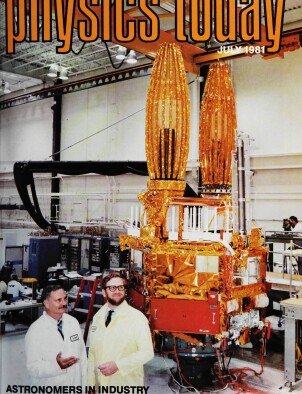Astronomers working in industry
DOI: 10.1063/1.2914644
As everyone is now aware, the academic job market began to go sour in the 1970s, and predictions for the 1980s are even gloomier. Physical science PhDs are more fortunate than their colleagues in other fields, however, because they have the outlet of jobs in industry, where they can use many of the skills they acquired in graduate training. Astronomers are in a special position, however. First, production of PhDs has decreased much less in astronomy than in physics. Second, astronomers are frequently perceived as impractically trained and lacking the skills that industry requires.
This article is only available in PDF format
References
1. Astronomers considering industrial employment will find the following helpful: “Getting Jobs in Industry,” James Wertz, Bull Am. Astron. Soc. 9, 424 (1977).
2. M. L. Perl, Ed., AIP Conference Proceeding Number 39, Physics Careers, Employment and Education (Penn State, 1977), American Institute of Physics, New York (1978).
3. The American Astronomical Society published a monthly job register that is sent to institutions across the United States. For information, employers may write to the executive Office, AAS, 1816 Jefferson Place, N.W., Washington, D.C. 20036.
More about the authors
Robert C. Bless, University of Wisconsin, Madison.
Ivan R. King, University of California, Berkeley.




